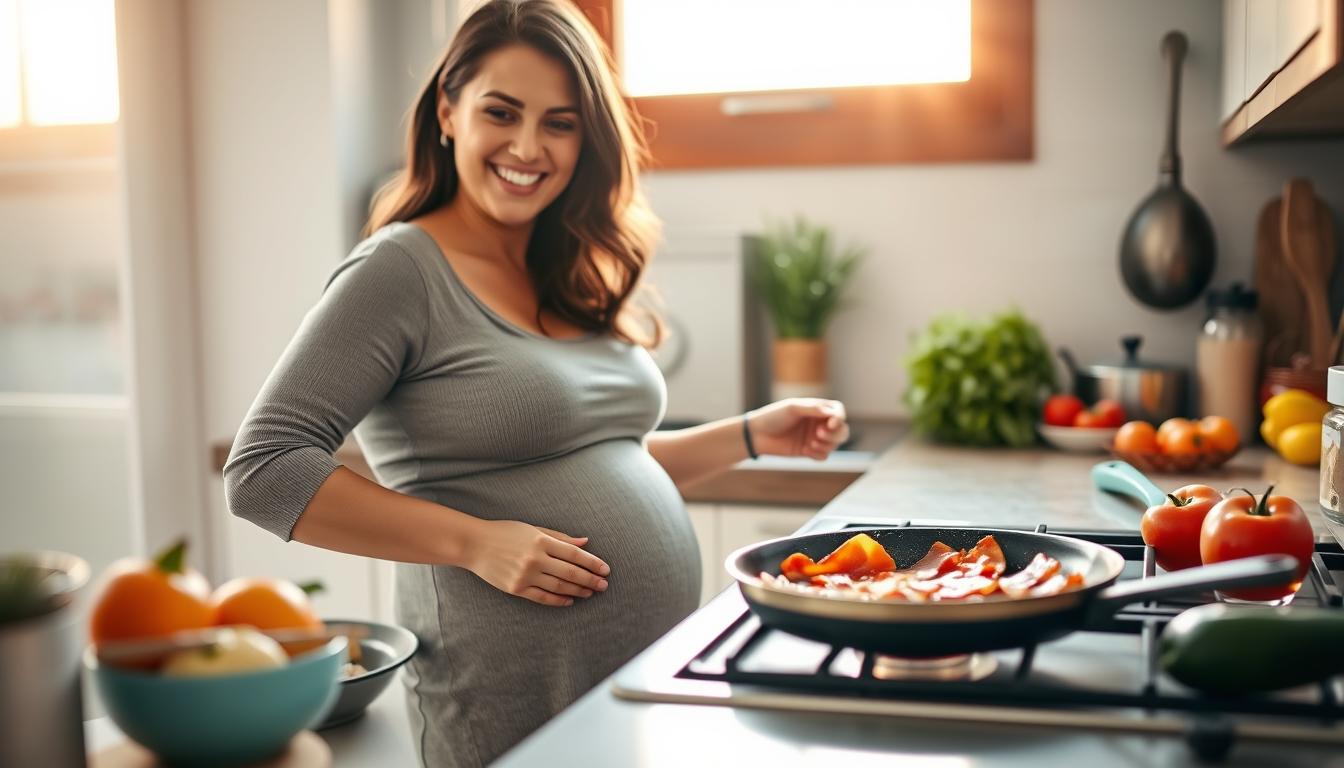Navigating the world of prenatal nutrition can be overwhelming, especially when it comes to understanding which foods are safe to consume. One of the commonly debated topics among expectant mothers is the question: can you have bacon when pregnant? This inquiry is often surrounded by a myriad of pregnancy myths that can lead to confusion. To make informed dietary choices during this crucial time, it’s essential to distinguish fact from fiction regarding bacon during pregnancy.
The concern over dietary restrictions is not new, as various cultures have long practiced food taboos during pregnancy. A review of thirty-two articles concerning antenatal dietary restrictions revealed a gradient in taboo focus, ranging from negligible physiological interest to serious concerns about increased birth weight and complicated deliveries. Non-agricultural societies tend to avoid non-domesticated animal foods, while agricultural communities often focus on more processed products.
Such taboos highlight the need for a better understanding of dietary behaviors during pregnancy globally, particularly as obstructed labor remains a significant threat to maternal health in regions like Africa and Asia. Given that food choices can impact birth outcomes, expectant mothers must stay informed about the health risks and benefits associated with various foods, including bacon. This article aims to clarify the misconceptions surrounding bacon consumption during pregnancy and provide you with valuable health tips for pregnant women that consider your well-being and that of your baby.
Understanding Pregnancy Food Safety
When it comes to pregnancy nutrition, understanding food safety is crucial for expectant mothers. The health risks during pregnancy often stem from consuming improperly prepared foods, particularly meats. It is essential to follow pregnancy guidelines to ensure that you and your baby remain healthy throughout this important time.
Importance of Food Safety During Pregnancy
Maintaining pregnancy food safety helps safeguard both your health and that of your unborn child. Foodborne illnesses can lead to serious complications that may affect pregnancy outcomes. It is important to be aware of safe foods during pregnancy and avoid risky choices. Proper food handling, cooking, and storage are vital components of ensuring your nutrition is safe.
Common Pregnancy Guidelines for Meat Consumption
When consuming meat, particularly pork products like bacon, it is imperative to adhere to specific guidelines:
- Cook all pork and processed meats thoroughly to at least 165°F (73.8°C) to eliminate harmful bacteria.
- Look for lower-fat alternatives, such as turkey bacon or plant-based options like soy or mushroom bacon, to maintain a balanced diet.
- Pay attention to sodium and saturated fat intake from bacon, as excess can lead to pregnancy complications.
- Reheat any leftovers until steaming hot to minimize the risk of bacterial growth.
Risk of Toxoplasmosis and Listeria
Specific pathogens pose particular threats during pregnancy. Salmonella, Staphylococcus aureus, Toxoplasmosis gondii, Yersinia enterocolitica, and Listeria monocytogenes are commonly associated with pork and processed meats. Infection can result in severe consequences for both mother and child. Toxoplasmosis, for example, can lead to serious birth defects, while Listeria can cause miscarriage or stillbirth. Awareness of these risks underlines the significance of practicing careful food safety measures during pregnancy.
Can You Have Bacon When Pregnant?
Understanding the implications of bacon consumption is crucial for those who are pregnant. While bacon is a flavorful addition to many dishes, it carries several health risks that warrant careful consideration.
Health Risks Associated with Bacon Consumption
Pregnant individuals should be aware of the bacon health risks that come with its consumption. Bacon is classified as a class-one carcinogen and has been linked to an increased risk of childhood cancers, autism, and brain tumors in offspring. Another major concern is Listeria bacteria, which can lead to serious health issues, exacerbating the need to avoid processed meats like bacon during pregnancy.
- The high cholesterol content in bacon may impair blood flow, particularly harmful during pregnancy.
- Consuming bacon can disrupt hormone regulation, affecting the growth and development of the baby.
- Pregnant women are advised to limit bacon due to the high sodium levels, which can increase blood pressure risks.
Cooking Bacon Safely
Cooking bacon safely is essential to mitigate risks. Pregnant individuals should ensure that bacon is thoroughly cooked until crispy, which is crucial to eliminate harmful bacteria. Following the bacon consumption safety tips can help you enjoy this treat while prioritizing health.
Consider these steps for cooking bacon safely:
- Cook bacon to an internal temperature of at least 165°F.
- Avoid consuming cold or raw bacon products.
- Use separate utensils for raw bacon to prevent cross-contamination.

Awareness and adherence to these precautions can make a significant difference in ensuring a safe dietary experience during pregnancy. Opting for alternatives such as turkey bacon or mushroom bacon can also provide a healthier option while still satisfying your cravings.
| Nutritional Content per 100g of Cooked Bacon | Calories | Total Fat (g) | Saturated Fat (g) | Cholesterol (mg) | Sodium (mg) | Protein (g) |
|---|---|---|---|---|---|---|
| Bacon | 898 | 99.50 | 31.991 | 97 | 27 | 27 |
Moderation is key when it comes to eating bacon when pregnant. By being proactive and informed, you can navigate the complexities of dietary choices during this critical time.
Conclusion
In summary, incorporating bacon into your pregnancy diet can be safe and satisfying, provided you adhere to essential food safety guidelines. With a focus on cooking bacon thoroughly and consuming it in moderation, you can indulge in this popular comfort food without compromising your health or that of your developing baby. There is no need to sacrifice your cravings when you can enjoy bacon during pregnancy responsibly.
It is crucial to remain informed about the various safe foods during pregnancy and make wise dietary choices. While bacon may contain nitrites, the average intake among pregnant women is significantly below the recommended limits, making it manageable within a balanced diet. Consider it just one part of a broader selection of health tips for pregnant women to ensure you are meeting nutritional needs while enjoying your meals.
Ultimately, understanding how to navigate your pregnancy diet helps empower you to make choices that work for you. By following safe cooking practices and being aware of potential risks, you can confidently add bacon to your menu while still prioritizing overall health and well-being during this important time.
